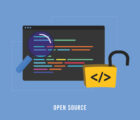By the time this issue of the Actuarial Review is published, we will have been living with the impacts of COVID-19 for a year or more. For those of us who lost friends or relatives, the impact will be forever. Some of us will never recover from the financial impact of losing a job.
I started this piece with a list of all the things I missed under this situation, but that alone caused me to reach my word limit. I’ll leave it to you to make up your own list — but keep it and make sure you celebrate being able to do those things currently prohibited if and when things return to “normal.”
When we went to work, rather than working from home, we socialized with co-workers and shared in their celebrations and sadness. We empathized, sympathized and so forth. We shared our lives with them, and they shared their lives with us. A bad day at the office didn’t seem so horrible compared to someone’s aunt going through chemotherapy or another person’s kid not getting into the school they worked so hard to enter. Our ups and downs could be put into perspective.
It is as if many of us “retired” all at once. We no longer go into the office, or if we do, it is under far different circumstances. We generally don’t socialize with co-workers — no going out to lunch or drinks after work. And forget about any company bowling, baseball, softball or basketball teams or other activities. With much of our social life centering around our jobs, this work disruption has also disrupted our social lives.
I have a big concern about how this new lockdown environment will affect our abilities to socialize with each other. These lockdown effects don’t apply just to those who work in offices. Students are affected by virtual learning and limited or no sports, social events or other extracurricular activities. Sports events are social events for the fans. Social skills are important to our personal and professional lives and, like any skills, if you stop using them, they start to languish. Relationships can fade, and we can lose touch with each other.
Younger people, who are used to texting friends and family, might not be as aware of the curtailment in socialization. Lockdowns are driving us all even faster to being social on electronic devices. But shutting down opportunities to interact with others personally, rather than electronically, denies younger people helpful learning experiences as they mature. For us older people, we are in jeopardy of losing the in-person social skills that we already possess.
I hope that the impact of lockdowns on our social skills will not be permanent.
Now that work and home are in the same location, new social issues have arisen. I can no longer go to work to get away from my home life because I now work from home. I have difficulties leaving work for the same reason. Relationships at home can become stressed with the lockdown. Too much togetherness with a spouse, partner, child or other family member can strain the relationships.
When I started working at home, I needed to make sure that my wife Diane and I weren’t adding friction to our relationship. That took a lot of work, and things are still being fine-tuned. Recently, I added a sign at the front of my office that reads “I am attending a webinar.” A red, yellow or green sticky note attached to the sign means “please don’t disturb,” “you can disturb if necessary” or “come on in, it isn’t a big deal,” respectively, but they only help when I remember to display the notes.
Video meetings and virtual conventions are not the same as in-person meetings. Video meetings are like a series of mini-presentations. In video meetings, one person talks and the others listen. These meetings are one-to-many versus allowing one-to-one or one-to-few. Side conversations can happen during video meetings in the chat window, but they are tricky and certainly not as frequent as side conversations at an in-person meeting or a convention. It is much more difficult to know someone or catch up with someone you know in a virtual, “not-in-person” environment. My conversations using virtual meeting chats tend to be safe and not very personal or revealing.
Everyone’s situation is so different, and their personal socialization needs so varied, that I am not comfortable suggesting any solutions. I just want people to be aware of my concern.











